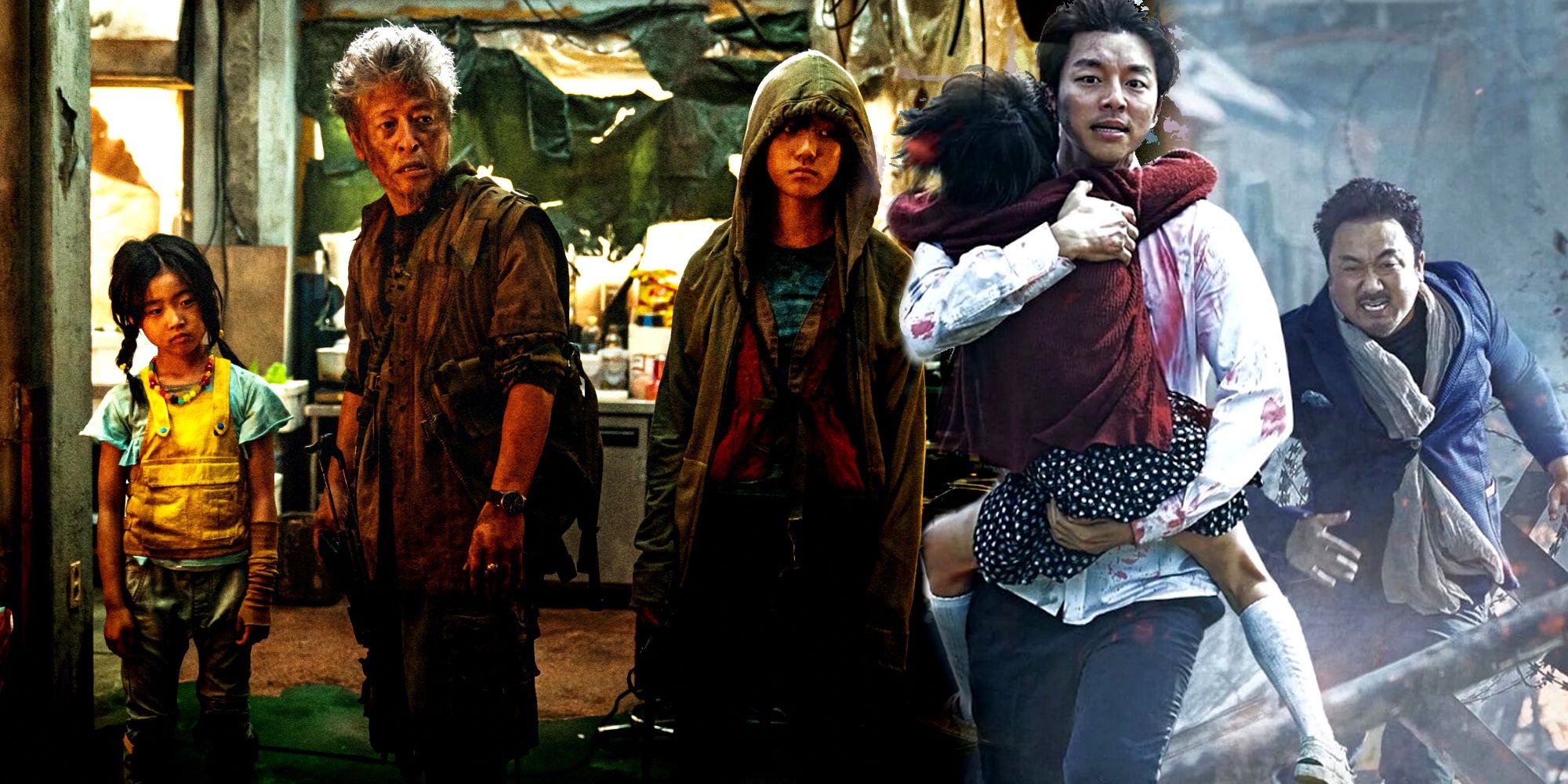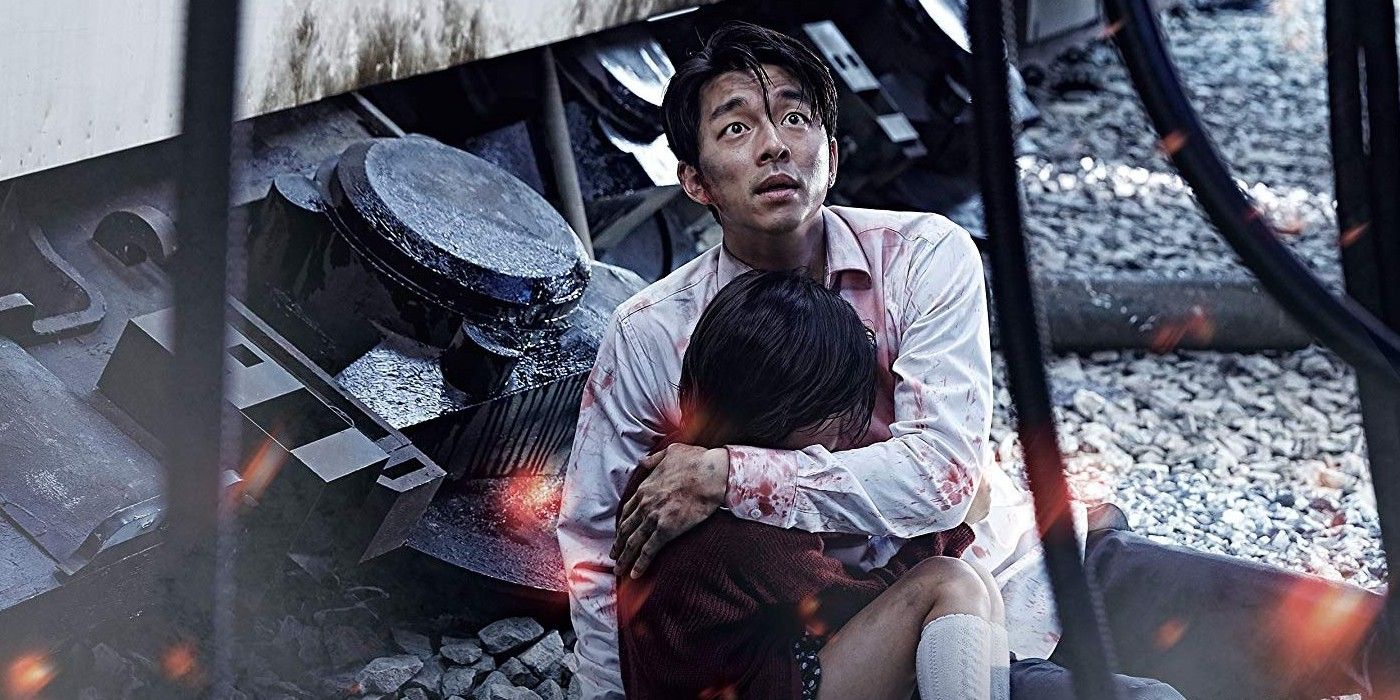WARNING: Major spoilers for Train to Busan and Peninsula ahead
2016's zombie apocalypse drama, Train to Busan, and its 2020 action horror sequel, Peninsula, teach a valuable lesson about how children are the true future of humanity, and that's why they're so important.
Director Yeon Sang-ho changed the face of modern zombie apocalypse movies by presenting his first outing, Train to Busan, in the claustrophobic setting of a commuter train with passengers of various age, status, and means aboard. Everyone has a different backstory, but they're all forced to bond together once a viral outbreak leads to an infected passenger getting on board. From there, the infection spreads and Korea descends into ruin. By the time Peninsula picks up, the Korean peninsula is all but gone, lost to the undead hoarde — it's nothing more than a wasteland where a few unfortunate survivors have tried to rebuild some semblance of a society. Peninsula is connected to Train to Busan only in the sense that the events take place in the same universe; it takes place four years after Train to Busan. Also, none of the characters from the previous movie carry over, as only Su-an (Kim Su-an) and Seong-kyeong (Jung Yu-mi) survive.
Peninsula delivers a more hopeful ending, with four survivors being escorted via a UN helicopter to an unknown location, presumably Malaysia, where the chopper hails from. The survivors of Peninsula are Jung-seok (Gang Dong-won), Min-jung (Lee Jung-hyun), Joon-i (Lee Re), and Yu-jin (Lee Ye-won). While the mother and her daughters experienced the profound loss of their beloved grandfather before they made it to safety, both Min-jung and Jung-seok proved that they would risk anything and pay the ultimate price to see the two girls leave the island safely. Not only was that what the grandfather wanted, and was happy to risk his own life for, but it's similar to how Seok-woo (Gong Yoo) risked his life for his daughter, Su-an, and even left her in the hands of a stranger just to give her the chance at a longer life. This is because children, who are often sacred in horror movies, present a look at the future — without them, it likely doesn't exist.
Zombie movies and zombie apocalypse movies have been around in cinema for some time, and have come a long way from George A. Romero's Night of the Living Dead in terms of thematic content. Even still, Train to Busan and Peninsula know how to play to an audience and tug at the heart strings while putting its main characters in peril from start to finish. Shows like AMC's The Walking Dead have proven that a zombie threat and apocalypse setting are made infinitely more successful by the introduction of characters that people actually care for and about. Without that emotional investment, there's little reason to continue watching a situation that is - for the most part - complete fiction. Children are inherently able to bring out an audience's vulnerabilities; there's a reason why many horror movies won't dare kill off children. The ones that do, like the depiction of Gabe's tragic death in Pet Sematary, are instantly marked with an extra level of severity for the inclusion of such content.
In short, putting children in danger is one way to get an audience's interest, just like stakes can be raised by putting a dog in danger. Horror movies where the dog doesn't die are often favored by some audiences, but those who do tune in are likely hoping for the best outcome, and will pay more close attention because of that emotional investment. However, Train to Busan and Peninsula don't just put children in danger — they give them strength and merits on their own. Su-an was resourceful, brave, smart, and could be counted on to think quickly on her feet. Joon-i and Yu-jin have developed a system with remote-controlled cars that make loud noise and flash bright lights to lure and control the zombie crowds.
Joon-i also has learned excellent defensive and offensive driving skills that saved their lives on more than one occasion. It's this capability that makes them more than just a soft spot to viewers. The children reiterate how they represent the hope and future of humanity; without them, culture, legacy, and the entirety of the human race would cease to exist. This lesson about humanity's ability to rebuild no matter the state of the world is at the core of modern zombie apocalypse depictions, and the Train to Busan movies execute that perfectly.


